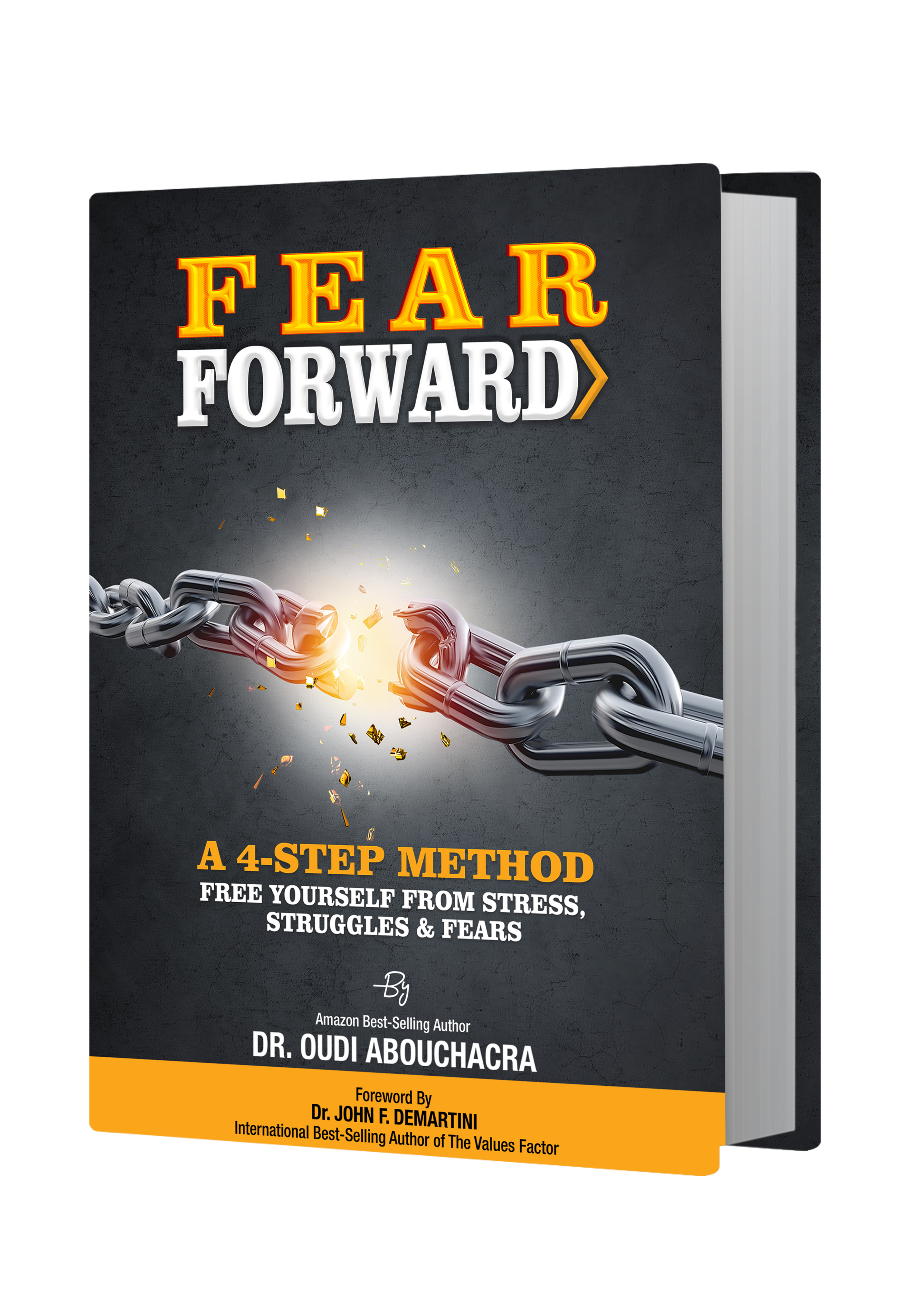Business Coaching
“The strength of the team is in the individual and the strength of the individual is in the team.”
Wake up inspired, go to bed grateful and in between chase your dream.

Navigating the demands of your professional life is challenging.
Most people struggle to effectively deal with the root cause of work-related stress and to keep their business lives from spilling over into their personal lives.
You can’t just flip a switch at 5 pm and go home without a care in the world… Well, you can, but in one form or another, you take your challenges home with you (and vice versa)…
The ABCDES (Attitude, Breathing, Chiropractic/Correct Posture, Diet, Exercise and Sleep) have changed the lives of countless entrepreneurs and career-driven individuals.
If you’re thinking that these six areas are too simplistic and have nothing to do with business, well, I can tell you one thing for sure:
Without knowing anything about your line of work, neglecting them will lead to a drop in performance professionally and personally — I can assure you that.
On the contrary, when you empower the ABCDES you can be certain that your productivity, efficiency and fulfillment in all areas of your life will skyrocket!
You don’t have to live with fear of failure, anxiety, and insecurity at work. You don’t have to let work challenges erode your personal life, health and relationships at large.
You can reach a point where you step into the office, embracing the challenges ahead, and step out of the office feeling grateful and inspired whether you own the business or not.
Many people are working themselves to the ground, trying to get ahead while abandoning all sense of self-care.
Still… there are those who resent their workplace despite it being their primary source of income and funding their lifestyle.
Adjusting your attitude as it relates to
- Overcoming virtually any personal or professional challenge. This is the subject of Dr. Oudi’s book called FEAR FORWARD.
- Rapid decision making, innovation and creativity
- Boosting your integrity and facilitating congruency between what you think is priority, your goals and your actions
- Helping professionals understand what risks come with setting BHAG (big hairy audacious goals) or skyscraper and land-scraper goals that are tiny. As well as distinctions between being process driven versus goal driven
- Fostering a culture of alignment and appreciation
- Awakening your leadership and overcoming networking fears
- The psychology of speaking and growing your business / career.
Mental Toughness Audio Podcast
The Psychology of Referral Generation
This is the subject of, Work Your Network with The 4Cs – Dr. Oudi’s Amazon best-selling book co-authored by Dr. Ivan Misner, dubbed the father of modern networking by CNN. Since the release of the title, he has been in high demand for coaching on how to elevate the 4Cs: Credibility, Competence, Clarity and Connectivity.
Here is more content related to the book Work Your Network with the 4Cs:
Administering a peer-to-peer assessment for your organization. Why?
- Awakening your leadership and overcoming networking fears
- The psychology of networking and growing your business / career.
First, to see where your team members stand in each other's eyes, and second, to expose weaknesses that need strengthening. The 4Cs assessment is based on the book Work Your Network with the 4Cs written by Dr. Oudi and his coauthor, Dr. Ivan Misner, dubbed the father of modern networking by CNN and Forbes. Chapter 7 is dedicated to the importance of the assessment and how to administer it properly.
Would you like to know more about the 4cs assessment tool? Here is an exercise from the book
Implement the 4Cs Assessment in Your Organization/Network
Imagine you know exactly how others perceive you. Imagine knowing where you are weak and strong when it comes to each C. More than just imagining this, you can find out by implementing the 4Cs Assessment. This assessment will help you and your fellow organizational members understand where they stand in terms of Competence, Credibility, Clarity, and Connectivity. We will explain how it all works, how it can be used in your organization, and, if you are a BNI member, how it can be used at the Chapter level.
The first step is to rate your fellow members on each C on a scale from 0-10 such as in the table below. It is essential that everyone is encouraged to rate each other as accurately as possible. In the end, you will get a score for each C which you will then have the opportunity to compare to other Cs. You can also compare your score to your group’s average; however, this will require someone to calculate it. It is recommended that both the group average and individual scores be done by someone outside the group. Here is an example of a 4Cs assessment below:
So far, this assessment has been piloted around the world, and it is giving professionals feedback on important areas related to business that they otherwise would not know.
We have found that anonymity is important when administering the 4Cs Assessment. While it might be tempting to know where you stand with each individual member of your group, we find that approach is not without its limitations. In short, your peers don’t want you to know they think that you aren’t clear … or competent … or well connected. You get the point. By administering the assessment anonymously, everyone is guaranteed frank feedback. If you happen to be part of an organization that has a culture of Radical Transparency, popularized by Raymond T. Dalio, author of Principles, then perhaps anonymity can be bypassed.
However keep in mind that a culture of Radical Transparency doesn’t happen overnight, and comes with a fair share of risk.
| Member | C Competence | C Credibility | C Clarity | C Connectivity |
How good are they at what they do? (0 – 10) 10 is the highest | How much do you trust them as a person? (0 – 10) 10 is the highest | How well do they communicate about their area of expertise? (0 – 10) 10 is the highest | How well connected are they? (0 – 10) 10 is the highest | |
| Oudi Abouchacra | ||||
| Ivan Misner | ||||
| Name | ||||
| Name | ||||
| Name | ||||
| Name |
What others have said
Building confidence and enriching content as a presenter.
A professional speaker since his College days Dr. Oudi coaches on how to deliver effective presentations which includes mastery over what he calls the inner game of confidence and the outer game of content. He says, “There is no point of having a perfectly crafted speech if you don’t have the confidence to deliver it and conversely it is pointless to have over-the-top confidence if your presentation is content poor.”
Key areas to master to step up your speaking game: (in Video)

Win the war within 6 week audio program
Win the War Within – 6 week Audio program: Overcome your speaking fears, anxieties and insecurities once and for all. IT IS possible to exude confidence, seize opportunity and leave others wanting to rub shoulders with you, every time you speak in public. Imaging speaking to groups with the same comfort, confidence and certainty as when speaking to a loved one in the kitchen.
If your ready to come completely out of your shell as,a speaker, to win the respect of your audiences and exand your influence as a presenter, this program is for you!
Proper Breathing
- To boost energy and enthusiasm when workplace ambience is low
- To restore calm and relaxation during stressful periods
- To enter a centered poised state when facing important decisions or important meetings
- To prevent headaches, tension and other spinal related injuries that come from a weak core and from overusing upper back, and neck muscles
- To reduce fear, anxiety and full blown panic attacks
- To boost performance related to endurance, weight training and other athletics and while preventing injury
- To promote sleep and digestion
Chiropractic and Correct posture
- To treat and prevent the TOP spinal related conditions seen in chiropractic offices around the world including: Disc injuries, headaches, Lower back pain, neck pain, upper back pain, arm pain, leg pain, Scoliosis, headaches as well as other nerve, muscle and joint issues.
- To ensure proper ergonomics at it relates to sitting (at workstation, while driving and during meetings).
- To ensure proper posture while using technology (P.C and phone usage for example) as this is often the cause or trigger for low back, upper back, and neck issues just to name a few.
- To discuss home related postures that may lead to professionals going into the workplace stiff and weak
Diet
- To boost energy, productivity, and efficiency at work
- To prevent food related distractions such as digestive issues, mental fog and headaches to name a few
- To prevent absenteeism or disability due to diabetes, heart disease and other career crippling disorders
- To help with the mastery of what, when, and how much to eat as well as how to overcome cultural, social and interpersonal pressures
- How to organize your eating patterns so your energy stays consistent through the day without the need for caffeine and other stimulants
- Helping to avoid energetic lows and crashes
- How to eat so that it doesn’t interfere with your sleep quantity and quality
Eat-ology Testimonials
Exercise
- Ideal stretch routines for office workers
- Tips for muscle growth and strength
- How to boost performance during fitness training in the minimal amount of time so you can get back to work
- The secrets to preventing muscle soreness and overtraining so that you minimize lost productivity due to excess rest and recovery
- How to know how many days a week to train, how to schedule your rest days and how to know on days when you are unsure, if you should train or rest
- Use of cold exposure to promote performance, reduce soreness and optimize recovery
Sleep
- Deeper, rejuvenating and more structured sleep patterns
- Getting the maximal quality with the minimum quantity
- How to switch off despite negative thoughts keeping you up at night like when you keep reviewing a conversation that has gotten to you
- How to switch off despite your mind running a mile a minute because of anticipation of something positive
- How to sleep despite worry, fear, guilt and shame and other emotions
- How to leap out of bed inspired on a consistent basis
Eliminate distraction. Get Inspired. Reach your full potential.
Inspire your team and grow your business
This is what my coaching style offers you:
- Fully understanding your challenges
- Having a well-developed, proven strategy to deal with them
- And then being held accountable
Your problems are addressed at their root. What you learn from me, you can apply throughout your life! Your results aren't only profound; they're also measurable.
People assume that individuals are solely responsible for their success. But the truth is most successful people have one massive advantage in common — a COACH!
Think of any successful person in your field…
And I can confidently say that in one way or another, they had a coach at their side, driving them, mentoring them and showing them the way. There's so much value in having an expert guide you towards your true potential. Whether it’s a singing coach, a swimming coach, a boxing coach or even a mindset coach… Their goal is always the same: improve your performance.
Inspired Results has the recipe.
It has the track record to prove to you that you CAN be more than you are today because you have the most important ingredient - potential. And we know how to unlock it. In our first session, we'll help you identify each and every high-priority obstacle you need to address and then put a strategic plan in place to tackle them. Seize Your Business Goals And Objectives. Maximize Your Productivity And Efficiency With Business Coaching
Learn more about our specific brand of business coaching!


